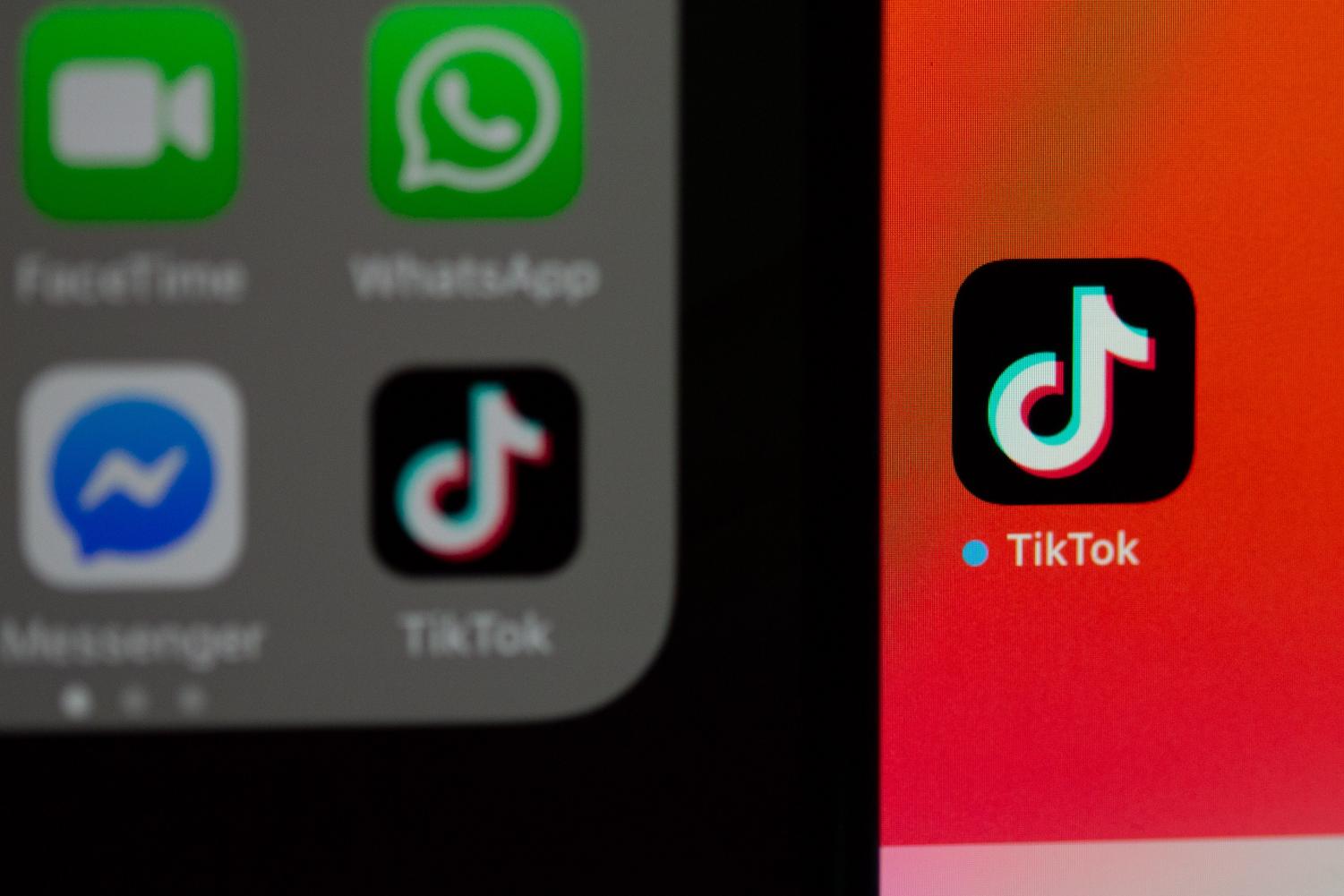
IS TIKTOK MAKING THE MENTAL HEALTH OF THE YOUTH WORSE?
February 7, 2022
TRIGGER WARNING: SELF HARM AND MENTION OF EATING
Scrolling on social media everyday can be a lot for your brain to handle. Not only can it hurt your eyes, but many experts believe it could also hurt your self esteem. Modern day technology has made it so easy to see what everyone else is doing and, more specifically, remind you what you aren’t doing.
It makes it so easy to doubt the way you’re living and your looks compared to others , and it can make you think you don’t have as cool of an aesthetic as others.
Lately users of the social media app TikTok have started a trend that is troubling many observers and other users themselves. Teenagers have been posting content where they subtly encourage self harm or eating disorders. Some videos posted are even titled “thinspo.” Thinspo is “inspiration” to become thinner, and some videos include ideas to stop eating.
Even posting one video may do more damage than imagined. When people like, share, or comment on a TikTok, other people can view it on their “For You” page, allowing other impressionable teens and preteens to see harmful videos. Different hashtags have an high amount of views such as #bodycheck with 82.1M views. Some videos even talk about “how good forms of self harm are.” Remember, this app is meant for children 13 and up. Is it time to put a stop to these trends and videos?
Some students here at Lincoln Park believe TikTok has affected them mentally. Aleenia Reich, a sophomore pre-law major from Aliquippa, said, “[TikTok has] helped and hurt in some ways. It definitely helps me pass time, but the small time that it is, it is negative, it is very negative.”
Reich was asked about how they felt seeing content about self harm on their “For You” page and responded, “Sometimes it’s a little damaging because then it makes me feel like my issues with self-harm aren’t as important.” They said when they do see potentially harmful TikToks they try to report them to prevent others from seeing it.
Some students do not feel TikTok has been harmful to them personally. Natalie Young, a sophomore music major from Conway, claims TikTok has not impacted her life for the worse, but actually for the better. “I Think it honestly made me more so cial. I’ve made friends on there before,”said Young.
cial. I’ve made friends on there before,”said Young.
Talking about the community on the app, she continued: “There’s negative people everywhere. No matter where you go you’ll find them.” However, she said, “I do feel bad for people who do have negative experiences or get negative feedback on TikTok; it’s just never happened to me.”
Even staff at Lincoln Park have their own opinions on TikTok. Middle school writing teacher Mrs. West doesn’t think it’s an issue with just TikTok, but cellphones in general. “It’s an addiction, as we call it in the Lost Arts class. I call them cigarettes. The second you don’t have something else occupying your time, you pick up your phone. When you wake up, you pick up your phone. When you finish eating, you pick up your phone. It’s truly an addiction.” Mrs. West doesn’t allow phones out in her classroom for this reason. She believes people will always pay attentionto the more addictive object.
She was asked why she thinks people use their phones so often and responded, “People desperately want connection. I see this as a way of looking for connection through these TikTok activities because we don’t have person-to-person, real-touch connections.”
Have humans lost person-to-person connections, and could this be because of the use of social media? Experts say teenagers aren’t as happy as they used to be. A declining rate in teens’ mental health could be because of the inclining rate of user numbers on different social media platforms.
While users with smaller platforms may seemingly romanticize mental health issues for a lot of youth, some big creators stray from the topic at all.
 Randall Kemp Clow, a sophmore music major from Hopewell, said big influencers don’t talk about mental health enough. “It sets a false standard. Influencers only let you see the bright side of their life. They don’t let you see how broken they are, and as an average person, I have broken parts of my life. They never show you theirs; it’s setting a false expectation.”
Randall Kemp Clow, a sophmore music major from Hopewell, said big influencers don’t talk about mental health enough. “It sets a false standard. Influencers only let you see the bright side of their life. They don’t let you see how broken they are, and as an average person, I have broken parts of my life. They never show you theirs; it’s setting a false expectation.”

